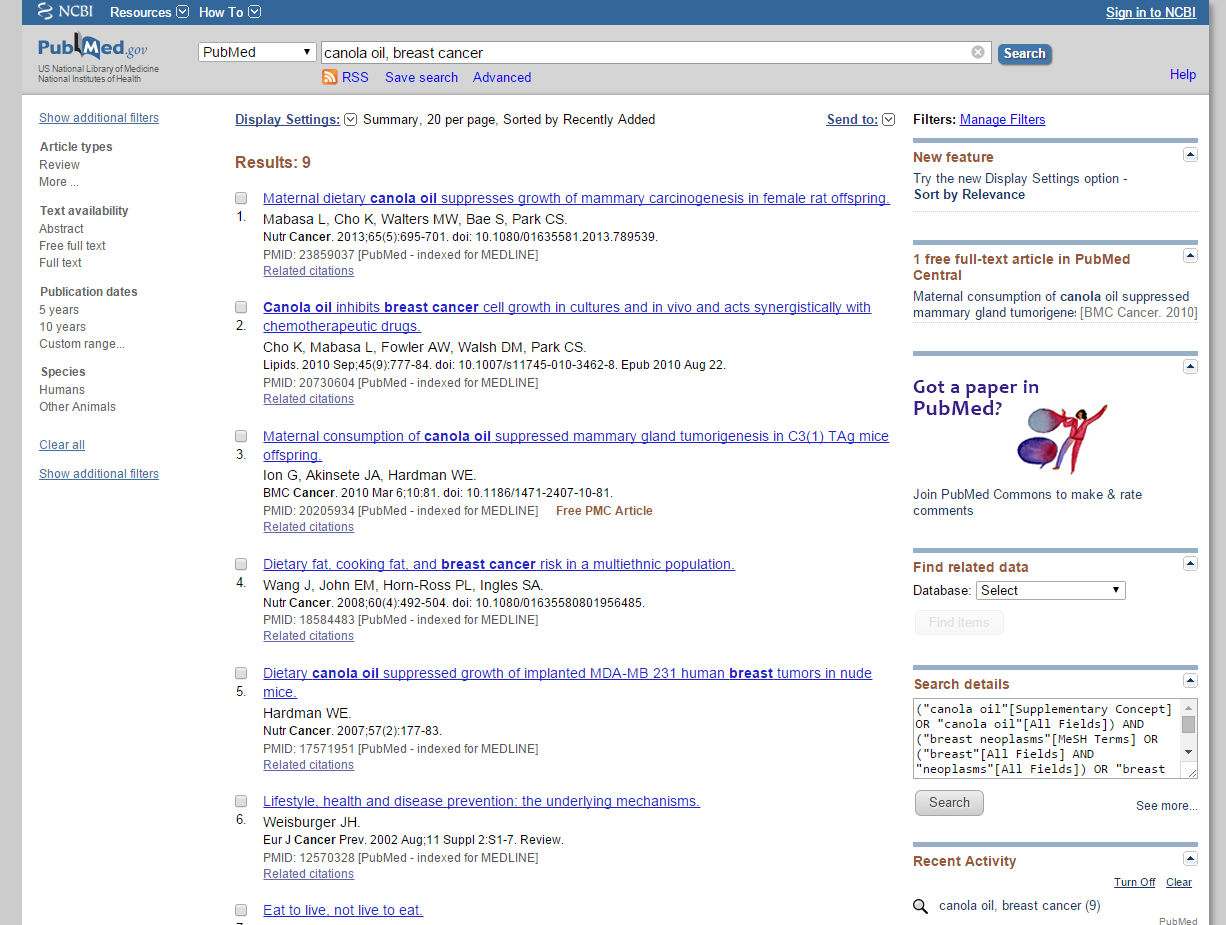So, there are many keys to understanding and reviewing scientific literature. To understand it on the level of a PhD scientist isn't actually all that difficult. So I thought I would give you all, over time, some tips to better understand scientific literature.
Part 1: The search for a "good" article
In order to understand if a point or argument you are reading about is relevant, it's good to learn what is, and isn't, a "good" article. But first, where do you find articles? That's extremely simple. There are databases that one can put in terms, and get out all of the papers related to those terms. So if you wanted to look up whether canola oil was good or bad for cancer. You could just go to the database and type "cancer" and "canola oil", and boom, articles. There are two primary databases for searching scientific articles. The first is google scholar http://scholar.google.com . Now, google scholar is a good place to find scholarly articles on any topic. However, typically a google scholar listing is not necessarily an indication of a good journal. Now, the other is http://www.pubmed.com . Typically, most scientists looking for articles on a subject of inquiry into science/medicine will use pubmed.
So you've searched pubmed, and now you've found some papers! But how do you tell which ones are "good" vs. "bad"?
Well let's take the example we mentioned above. I searched canola oil, breast cancer on pubmed. I have come up with nine articles, most of which stating that canola oil can be preventative for breast cancer. So, which articles do I trust? Well, the first thing to take into account is journal impact factor. This is a metric that is assigned typically yearly in Journal Citation Reports from Thomson Reuters. This measure basically says "how many times were articles published in this journal cited, vs the number of total articles in this journal". The higher the value, the "better" the journal. Now this isn't the be all end all of metrics, however if you are looking at journals, something with an impact factor of 1 will be far less difficult to publish in than a journal with an impact factor of 10. There are online databases (behind registration walls) that track impact factors, but really the easiest way to see one is to google "journal name, impact factor".
Now, an article is published on pubmed, and has a good impact factor...does that mean it's a good paper and all the claims made accurate? Well, while these are good early indicators, they do not necessarily mean that you have a "good" article. We'll talk another time about actually reading data and figuring out if it matches what the person is saying in the article. All the best!

No comments:
Post a Comment